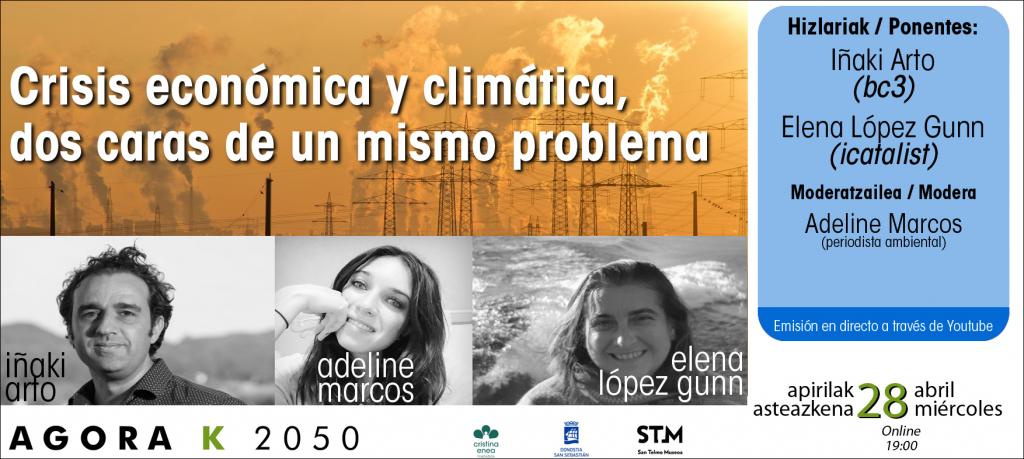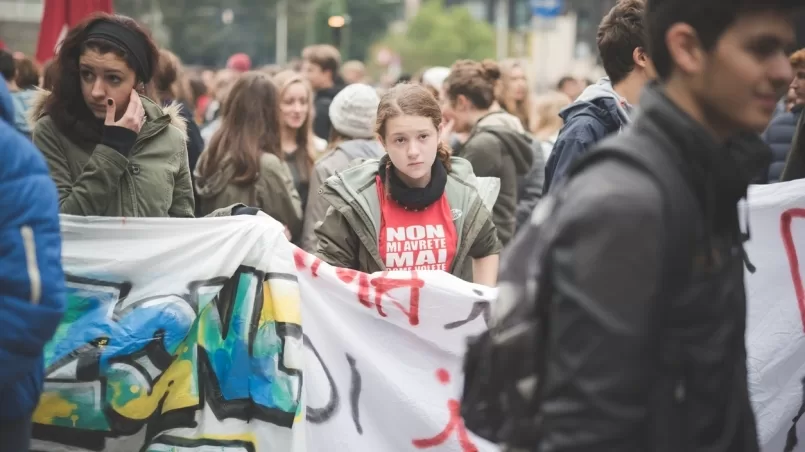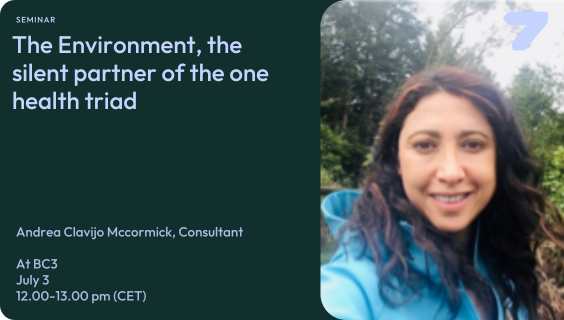Other Seminars
BC3-UPV/EHU Seminars: On Fraud and Certification of Corporate Social Responsibility
Dr. Carmen Arguedas
Departamento de Análisis Económico: Teoría Económica e Historia Económica, Universidad Autónoma de Madrid
We analyze the strategic decision of firms to voluntarily certify corporate social responsibility (CSR) practices in a context where other firms can falsely pretend to besocially responsible. Equilibrium outcomes are crucially determined by consumers’ beliefs about the credibility of firms’ CSR claims, which depend in turn on the(expected) fines for fraud. First, we show that an increase in such fines extends the likelihood of firms investing in CSR, at the expense of a reduced likelihood ofcertification. Second, fraud only arises when the fines for fraud are at intermediate levels and some CSR firms do not certify their practices. Third, the presence of fraudcomes at a cost for firms by inducing lower equilibrium prices than in settings with honest marketing. Forth, the coexistence of fraud and certification inducesdifferentiation price premia below marginal production costs and certification price premia above marginal certification costs. Lastly, social welfare rises as fines for fraud increase.
BC3-UPV/EHU Seminars: Social learning through economic experiments: an intervention in three rural water systems
BC3-Basque Centre for Climate Change Sede Building 1, 1st floor, Scientific Park of the University of the Basque Country, Leioa, Bizkaia, SpainProf. Juan Camilo Cárdenas
Professor, School of Economics, Universidad de los Andes, Bogotá (Colombia)
Economic experiments have traditionally been used as a tool for measuring human behavior in different contexts of social interaction. However, little has been discussed so far on the role of experiments as tools for learning and social change. Over the last year we conducted a series of educational interventions and measures of attitudes and behaviors on the use and conservation of water in three municipal aqueducts in Guasca (Colombia). In two of the three aqueducts we used economic experiments as a pedagogical tool for
understanding the effects of this activity on the behaviors and attitudes of rural households in the sample. We repeated the application of the games a few months later with most of the same sample of 200 participants. In one of these aqueducts we held workshops with the community to provide feedback on the results of the games. Our aim is to evaluate how attitudes and behavior of the households are affected by the participation in the experiments.
BC3-UPV/EHU Seminars: Emission Tax, Health Insurance and Crowding out of Energy Conservation Behavior: An Experiment
Dr. Pallab Mozumder
Department of Earth & Environment, Department of Economics and Social Science Laboratory, International Hurricane Research Center, Florida (Colombia)
A major share of domestic energy demand is met from conventional fossil fuel based sources, such as coal. Combustion of fossil fuels in production of energy causes emission of greenhouse gases and particle pollution, which leads to health hazards. As people are becoming increasingly concerned about these hazardous impacts, they may choose to reduce their energy consumption with energy saving installations. In this paper we present a decision-making experiment to understand motivation for energy saving choices in a diverse set of policy contexts. The experimental design includes multiple sets of decision-making choices differentiated with options to purchase health insurance. Altogether 64 subjects took part in 8 decision-making sessions. Every session consists of 3 sections and each section includes 30 rounds. In every round, subjects make a choice whether to spend on energy saving installations to decrease their household energy bill and emission related health risks. While each subject in the first and third section pays a lump sum emission tax, the emission tax is proportional to the total energy bill in the second section. Subjects make energy saving choices both with and without the option to purchase health insurance. The data collected in this experiment, allows us to see the effectiveness of a public policy intervention to increase energy efficiency. The empirical analysis suggests that energy savings increase when emission tax is proportional to total energy consumption. However, energy savings seem to be crowded out when subjects have the option to buy health insurance to cover pollution related health risks. We also find that rewarding scheme works better than the punishment scheme in promoting energy conservation. We discuss policy implications of our findings.
BC3-UPV/EHU Seminars: Species interaction networks, global change and restoration
BC3-Basque Centre for Climate Change Sede Building 1, 1st floor, Scientific Park of the University of the Basque Country, Leioa, Bizkaia, SpainDr. Daniel Montoya
Life Sciences Building, University of Bristol, Bristol, United Kingdom.
Network perspectives of biological communities are increasingly recognised as an important tool for guiding conservation policies. The reason for this is that network properties underpin many aspects of the structure and stability of biological communities, as well as the provision of fundamental ecosystem functions and services such as pollination, decomposition, biomass production, pest control, and water regulation. In this talk I will use a food web approach to address several aspects of the structure, stability and dynamics of complex biological communities. I will also present ongoing research exploring the effects of climate change in food webs, as well as examples of how species interaction networks approaches can be applied in restoration ecology.
BC3-UPV/EHU Seminars: La demanda de electricidad de los hogares españoles durante la crisis: efectos sobre el bienestar
Dr. Desiderio Romero-Jordán,
Universidad Rey Juan Carlos y FUNCAS
La crisis económica y el rápido incremento de los precios de la electricidad han tenido importantes repercusiones sobre su demanda. Utilizando microdatos de la EPF, este trabajo analiza a partir de una regresión cuantílica los cambios en las respuestas a precios y renta ocurridos en el período 2006 a 2012 (distinguiendo los años previos a la crisis del resto). En segundo lugar se analizan los efectos del shock en precios sobre el bienestar de los hogares. Los resultados muestran el incremento del precio de la electricidad (junto a la crisis económica) ha acentuado tanto la forma de U de la elasticidad precio como la forma de N de la elasticidad renta. Los resultados sugieren además que las pérdidas relativas de bienestar generadas por el fuerte aumento de los precios son una función decreciente de la renta.
BC3-UPV/EHU Seminars: Green accounting in a multi-sector model with terrestrial ecosystems
Itziar Ruiz de Gauna Ruiz de Loizaga
Instituto de Políticas y Bienes Públicos, CSIC
There is an increasing interest in extending national accounts to ecosystem services not recorded by official accounting systems but that are relevant to society, such as biodiversity conservation or public recreation. However, theoretical and applied green accounting analyses are not completely consistent, especially for the case of terrestrial ecosystems. First, most theoretical literature has so far assumed that forests are made up of a single species and that its growth is instantaneous, obtaining the result that it is enough to use information for the current year. On the contrary, the SNA and the SEEA recommend the use of future values. Our analysis show that using values for the current year only holds for strong and probably unrealistic assumptions. Second, many applications calculate the value of market goods and services using exchange values and then estimate consumer surplus for non-market ecosystem services. The SNA and the SEEA do not use of consumer surplus and theoretical interpretations of Net National Product as a welfare indicator also take it out. Our results confirm that non-market ecosystem services should be incorporated into national accounting using exchange values. We extend the analysis to cover a monopoly and a monopolistic competition. The latter markets structures are especially relevant for the recreational use of National Parks which are unique. We also present the empirical results of the valuation of public recreation in two types of forests in Spain, comparing compensating variation estimates and exchange values for the same valuation exercise.
BC3 Joint Seminar: March 22, 2018
BC3-Basque Centre for Climate Change Sede Building 1, 1st floor, Scientific Park of the University of the Basque Country, Leioa, Bizkaia, Spain“Revisiting changing energyscapes of coal: Opportunities for engaged social science of energy”
“Environmental futures studies of urban mobility and energy solutions – experiences from Swedish policy work and engineering education”
“The expanding geography of wind power conflicts: Debating scale, control and distribution at the low-carbon transition”
La transición cultural para la recuperación sostenible
El Plan de Recuperación, Transformación y Resiliencia impulsado por el Gobierno de España a través de los fondos Next Generation va a dirigirse, principalmente, a proyectos de innovación e infraestructura. Sin embargo, la creación de una Europa neutra en carbono exige ir más allá y acompañar esta transición tecnológica de acciones dirigidas a propiciar los cambios culturales de hábitos y prácticas sociales. Es decir, de una transición cultural.
Conferencia sobre crisis económica y climática para debatir en torno a las dos caras de un mismo problema
La sesión programada este próximo miércoles 28 de abril dentro del ciclo de charlas sobre cambio climático Agora K2050, versará sobre las consecuencias económicas de no actuar frente al cambio climático
Plan de Recuperación Europeo: Una Respuesta Federal a la Crisis
EuroBasque organiza en colaboración con Europe Direct Bizkaia, la Secretaría General de Acción Exterior de Gobierno Vasco y la Facultad de Economía y Empresa de la UPV/EHU el próximo martes, 22 de junio, de 9:00h. a 14:00 h. la jornada






